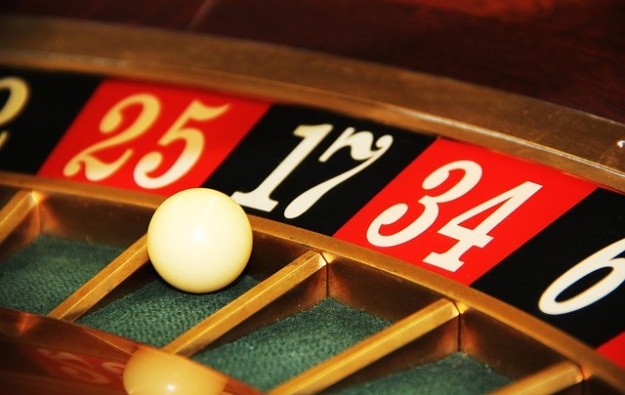Jeju gaming tax hike rejected by Seoul: analyst
May 23, 2016 Newsdesk Latest News, Rest of Asia, Top of the deck

A proposal by the Jeju provincial government to increase the tax on gambling at the South Korean holiday island’s casinos has been rejected by the country’s national government, Union Gaming Securities Asia Ltd said in a Monday note.
The Jeju authorities were proposing to increase taxation on gross gaming revenue (GGR) to 20 percent from 10 percent, according to the brokerage.
The note did not provide details on when the rejection of the proposal took place.
Other items proposed by the Jeju government included the implementation of “three-year licence renewal audits” and restrictions on the transferability of casinos licences, said Union Gaming. These were also rejected by the central authorities.
While Jeju is a self-governing province, certain policy matters, including modifications to tax rates, must get approval from the national government in Seoul.
“This is good news for Genting [Singapore Plc] as it moves forward with construction of Resorts World Jeju, which should open in late 2017,” Union Gaming analyst Grant Govertsen stated.
Genting Singapore has a partnership with mainland China real estate developer Landing International Development Ltd to build a US$1.8-billion casino resort on Jeju Island. The property is to be named Resorts World Jeju.
Mr Govertsen added: “[The rejection of a gaming tax hike] is also good news for other pipeline projects in Jeju… Finally, the eight incumbent casinos benefit from this ruling, including Bloomberry [Resorts Corp]’s Jeju Sun casino.”
Among the projects announced for Jeju is the “Dream Tower”. The plan for the scheme features a foreigner-only casino. Promoters include Korean firm Lotte Tour Development Co Ltd and Chinese state-owned developer Greenland Group.
Earlier this month, a unit of Asian casino investor Melco International Development Ltd announced it was to provide consultancy services to a casino that is “to be developed” over a period of three years on Jeju Island.
Don’t scare off investors
Mr Govertsen stated in Monday’s note that the national government “quite possibly rejected the call for higher taxes in Jeju as it does not want to scare off billions of [U.S.] dollars of integrated resort-related capital either already under construction… or moving towards construction” in Jeju and Incheon.
A total of three large-scale casino resorts have been announced for Incheon, near South Korea’s capital Seoul. Projects in the pipeline include: the Inspire Integrated Resort scheme, by U.S.-based Mohegan Tribal Gaming Authority and South Korean chemicals manufacturer KCC Corp; Paradise City, a development by South Korea’s foreigner-only casino operator Paradise Co Ltd and Japanese pachinko operator Sega Sammy Holdings Inc; and an unnamed third project – for which construction has not yet started – by U.S. casino operator Caesars Entertainment Corp and Hong Kong-listed real estate developer Lippo Ltd.
“In the context of an industry that is already under pressure from a waning Chinese high-end story, keeping the [GGR] tax component at a competitive 10 percent feels prudent,” Mr Govertsen stated in his comments. But he cautioned that the Jeju authorities could later try again to “push through more onerous regulations, including a higher tax”.
South Korea currently has 17 casinos, but the country’s nationals are only allowed to gamble at one of them – Kangwon Land in an upland area of Kangwon province.
While Kangwon Land continues to see “solid growth” in its business, the foreigner-only casinos in South Korea saw aggregate gaming revenue decline by 10 percent in 2015, Fitch Ratings Inc stated in a March note. The rating agency said at the time that the negative performance was related to dwindling gambling volumes from Chinese players, influenced by mainland China’s ongoing corruption crackdown and slowing economy.
Jeju does have some special concessions granted to its tourism industry by South Korea’s national government. The island is popular with mainland Chinese holidaymakers and offers them visa-free entry to Jeju if they arrive directly by international flight or international ferry or cruise ship. Mainland Chinese visitors to other parts of South Korea need a visa.
Despite the refusal of the proposal to increase the GGR in Jeju, Union Gaming noted that gaming operators on the island were already facing a de facto tax increase. That was because the provincial government was phasing out the ability for casino licensees to pay taxes on gross gaming revenue after deducting junket commissions, stated Mr Govertsen.
Related articles
-
 Visitors, steady spend to support Macau...
Visitors, steady spend to support Macau...Jul 18, 2024
-
 Macau GGR for first 14 days of July...
Macau GGR for first 14 days of July...Jul 15, 2024
More news
-
 Donaco EBITDA up y-o-y to above US$4mln...
Donaco EBITDA up y-o-y to above US$4mln...Jul 26, 2024
-
 HK listed Palasino upgrades Czech...
HK listed Palasino upgrades Czech...Jul 26, 2024
Latest News
Jul 26, 2024
Border-casino operator Donaco International Ltd has achieved a 164.17-percent year-on-year increase in its latest quarterly group earnings before interest, taxation, depreciation and amortisation...Sign up to our FREE Newsletter
 (Click here for more)
(Click here for more)
Pick of the Day
”We’ve got more traction outside of Macau at the moment. But Macau’s going be a bigger focus for us”
David Punter
Regional representative at Konami Australia
Most Popular
 Sheraton brand to exit Londoner Macao, to be Londoner Grand July 25, 2024
Sheraton brand to exit Londoner Macao, to be Londoner Grand July 25, 2024  Macau regulator probes unlicensed gaming agents July 24, 2024
Macau regulator probes unlicensed gaming agents July 24, 2024  Philippines gives 20k aliens in POGOs 60 days to leave July 25, 2024
Philippines gives 20k aliens in POGOs 60 days to leave July 25, 2024  Philippines-listed DigiPlus says not affected by POGO ban July 24, 2024
Philippines-listed DigiPlus says not affected by POGO ban July 24, 2024  Sands China 2Q EBITDA down q-o-q amid low hold, renovation July 25, 2024
Sands China 2Q EBITDA down q-o-q amid low hold, renovation July 25, 2024






